Antifreeze is a vital component in the cooling system of your car that prevents engine overheating. You probably store it in your home when you’re not using it.
But does antifreeze expire? It’s an important question because you want to make sure that the products you’re using are effective and safe.
If you keep your bottle of antifreeze well sealed, it will have an indefinite shelf life and no expiration. This is because the chemical ingredients used in this product are very stable and don’t degrade.
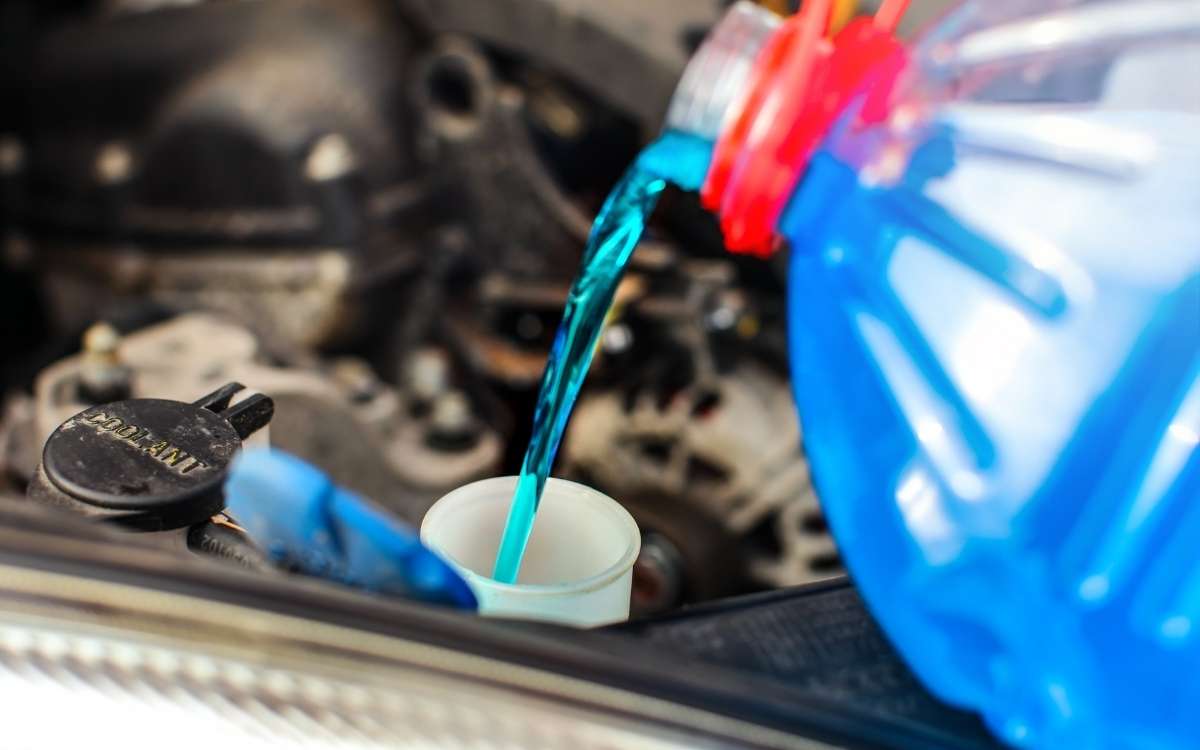
Of course, you should still check the quality of your antifreeze before using it. Other external factors besides expiration may have affected the quality of your product.
Read on to learn more about how to use and store this antifreeze so you can use it safely.
Table of Contents
- What is In Antifreeze?
- Does Antifreeze Go Bad?
- How to Extend the Life of Your Antifreeze
- Keep it in a Tightly Sealed Bottle:
- Use the Container Bottle for Long Term Storage
- Don’t Put the Bottle in Direct Sunlight
- Keep Your Engine Coolant Out of Extreme Heat
- Avoid Contact with Other Fluids
- Look for Changes in Color or Consistency
- Place Antifreeze Coolant Out of Reach of Children and Pets
- Check for Expiration Dates
- How to Dispose of Engine Coolant
- Are Coolant and Antifreeze the Same Thing?
- How Often Should You Change Antifreeze?
- How Do You Check Antifreeze?
- Final Thoughts
What is In Antifreeze?
All coolants either contain propylene glycol or ethylene glycol. These two chemicals are used because they have a very low freezing point.
This means that they can lower the freezing point of water, which is essential for keeping your car’s engine cool. You pour it into your antifreeze reservoir and it protects your cooling system.
There are often other ingredients included in the solution that helps to reduce any corrosion on your metal radiator.
This solution is stable enough to stay liquid for temperatures as low as negative 35 Fahrenheit.
Some antifreeze solutions are concentrated, while others are diluted. This is known as a pre-mixed engine coolant.
The concentrated solutions will have a higher percentage of propylene glycol or ethylene glycol. These solutions are meant to be diluted with water before use.
Should I Choose Pre Mixed Engine Coolant or a Concentrate?
If you’re not sure which type of antifreeze to use, it’s best to go with a pre-mixed solution. This is because it’s already diluted and ready to use.
You don’t have to worry about adding the correct amount of water to the solution.
Concentrated solutions are usually used by mechanics or car enthusiasts who want to have more control over the final composition of their coolant.
It’s important to note that you should never mix a concentrated solution with another type of coolant. This can cause serious damage to your car.
Does Antifreeze Go Bad?
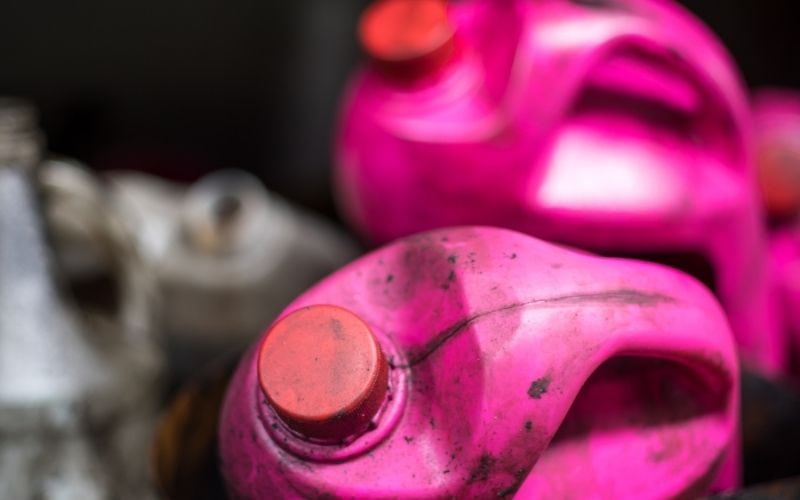
As we mentioned before, antifreeze has a very long shelf life. The chemical composition of the product is stable and will remain unchanged over time.
This is conditional on proper storage conditions. If your antifreeze isn’t in a tightly sealed bottle, the solution can evaporate.
You’ll know this has happened because the level of fluid in the container will be lower than when you first bought it.
Consider marking your bottle with a line where the liquid should reach so you can tell if evaporation has occurred.
Another thing to be aware of is that antifreeze can become contaminated. If it’s been stored in a dirty container or comes into contact with other fluids, it may not be safe to use.
This could also lead to toxic fumes or other problems, so it’s important to be cautious.
The best way to ensure that your antifreeze is still effective is to check the quality before using it. You can do this by looking for any changes in color or consistency.
If you notice anything off, it’s best to discard the product and buy a new one.
How to Extend the Life of Your Antifreeze
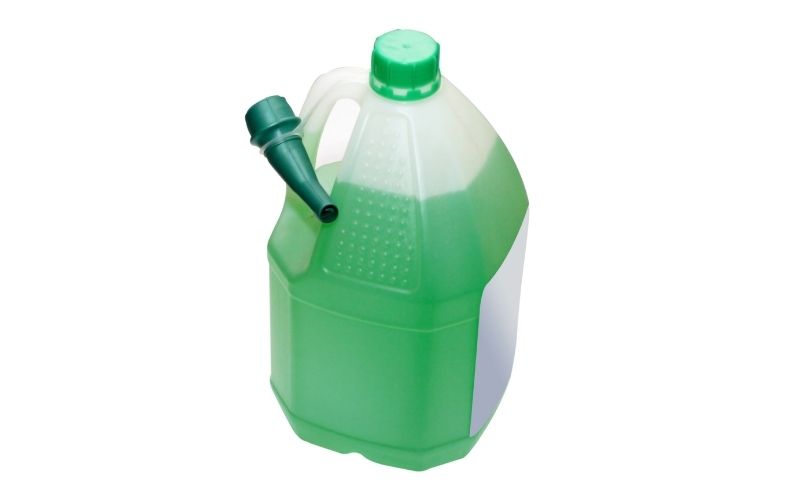
Here are a few tips for making sure your antifreeze lasts forever and is stored safely:
Keep it in a Tightly Sealed Bottle:
As we mentioned before, evaporation is one of the main ways that antifreeze can go bad. This mostly happens to pre-mixed engine coolant, which has a 50% concentration of water.
It’s less likely to happen if you have purchased the concentrated solution.
To prevent this from happening, make sure you store your product in a tightly sealed container. This will keep the solution from evaporating and ensure it has a long shelf life.
Use the Container Bottle for Long Term Storage
You don’t need to transfer your antifreeze to a different container for long-term storage. The original container that it came in is usually the best option.
This is because it’s designed to be airtight and prevent evaporation.
It’s also likely to be an opaque bottle, which will protect the solution from light. Exposure to light can cause some of the chemicals in antifreeze to break down over time.
Don’t Put the Bottle in Direct Sunlight
While you don’t need to worry about transferring your antifreeze to a different container, you should be careful about where you store it.
You should never put the bottle in direct sunlight, as this can cause the chemicals in the engine coolant to break down. It’s best to keep it in a cool, dark place like an industrial cabinet or garage.
Keep Your Engine Coolant Out of Extreme Heat
Antifreeze is designed to withstand extreme temperatures, but this doesn’t mean you should expose it to these conditions unnecessarily.
Since engine coolant is flammable, you should never leave it in an area where there’s a risk of fire.
If the bottle is punctured and the solution leaks, it could easily catch fire. So don’t store it next to or on top of unorganized tools and other flammable objects.
Avoid Contact with Other Fluids
Another way that antifreeze can become contaminated is if it comes into contact with other fluids. This could lead to toxic fumes or other problems, so it’s important to be cautious.
So it’s important to be careful when handling the product and make sure it doesn’t come into contact with anything else. If you do accidentally contaminate the solution, don’t use it in your engine.
Look for Changes in Color or Consistency
The best way to ensure that your antifreeze is still effective is to check the quality before using it. You can do this by looking for any changes in color or consistency.
If you see any sediment or separation, it’s best to discard the product instead of using it in your cooling system.
Place Antifreeze Coolant Out of Reach of Children and Pets
Since antifreeze coolant is poisonous, you should always keep it out of reach of children and pets. If ingested, it could lead to serious health problems or even death.
Engine coolant has a slightly sweet flavor to it and appealing color, so it’s important to be vigilant.
If you think your child or pet has ingested antifreeze, call a doctor or veterinarian immediately.
Check for Expiration Dates

Even though antifreeze doesn’t expire, some manufacturers include expiration dates on their products. This is usually for quality control purposes.
If you want to play it safe, simply honor this expiration date. Use the product or give it away to a friend or neighbor before the date approaches.
This will give you peace of mind that nothing will happen to your cooling system from using an older product.
How to Dispose of Engine Coolant
Even though the engine coolant lasts for a long time, you may not want to keep it forever.
Using a newer antifreeze coolant can give you the peace of mind that you’re using the highest quality product for your cooling system.
Keep in mind that the chemicals in your engine coolant are potent and toxic. It is illegal to dispose of them by pouring them down the sink or directly into the ground.
The antifreeze will seep into the ground and contaminate the groundwater supply. It can also easily run off into natural bodies of water with the help of rain and other inclimate weather.
Many states have specific regulations about how to properly dispose of engine coolant. You can usually take it to a recycling center or auto parts store that accepts used antifreeze.
They will have the proper equipment and knowledge to safely dispose of it.
You can also check with your local municipality to see if they have any special requirements or recommendations.
A recycling center will take your old antifreeze and send it off to a processing center. There, they will use a distillation process to separate contaminants from the glycol.
What is leftover can be used again in engine coolants and other products.
Are Coolant and Antifreeze the Same Thing?
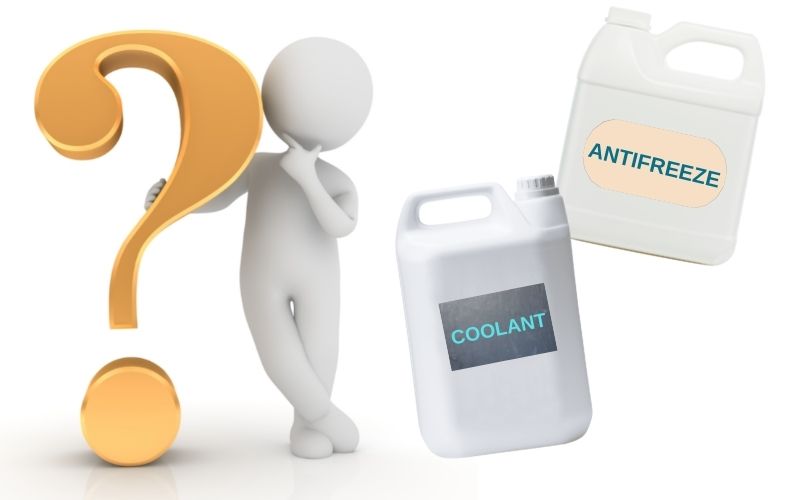
The terms “coolant” and “antifreeze” are often used interchangeably, but they are actually two subtly different things. Coolant is a concentrated antifreeze that helps remove heat from your engine.
It does this by circulating through the engine and absorbing the heat.
Antifreeze, on the other hand, is a concentrated solution that is mixed with water, which turns it into a coolant.
They usually both contain the chemical ethylene glycol that helps lower the freezing point of water. This way, your engine won’t freeze in the winter and overheat in the summer.
How Often Should You Change Antifreeze?
A new car should have its antifreeze changed after the first 60,000 miles. After that, you can usually get away with changing it every 30,000 miles or so.
However, it’s always best to check your owner’s manual for the manufacturer’s recommendation.
Ideally, after the first 60,000 miles, you should change your antifreeze every two years or 30,000 miles, whichever comes first. This will ensure that your engine coolant is always fresh and effective.
You may be able to go longer between changes if you don’t do a lot of driving or if you live in a mild climate. Many people discourage changing the antifreeze more often than necessary since it isn’t good for the environment.
If you have any doubts, it’s always best to consult a professional mechanic. They will be able to inspect your engine and coolant system to see if you’re ready for a change.
How Do You Check Antifreeze?
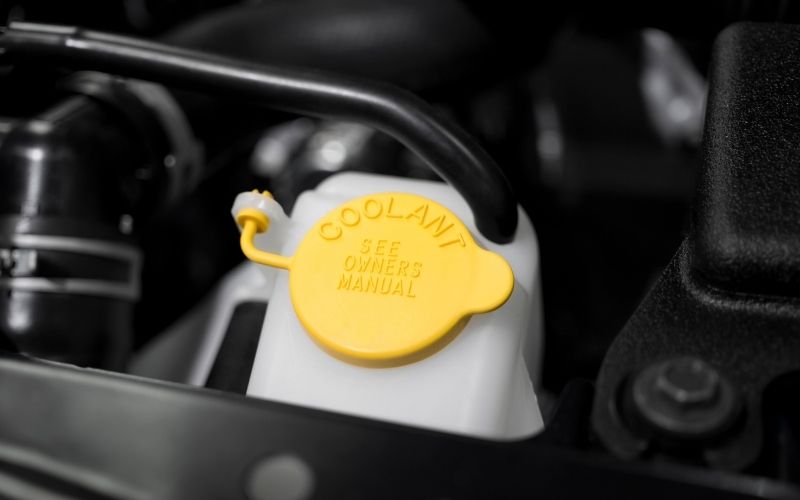
Checking your antifreeze is a simple process that can be done at home with a few tools. You’ll need a clean cloth, a funnel, and a container to catch the coolant.
First, locate the coolant reservoir under your car’s hood. It will usually have a yellow or green cap marked with “coolant” or “antifreeze.”
You can check the level of coolant by removing the cap and looking inside. If it’s below the “full” line, then you’ll need to add more.
To do this, use the funnel to pour the coolant into the reservoir until it reaches the “full” line. Be careful not to overfill it, as this can cause damage to your engine.
After you’ve added the coolant, replace the cap and start your car to check for any leaks. If everything looks good, then you’re all set!
Final Thoughts
Engine coolant is an important part of your car’s overall health and it can be a good idea to have some on hand. This can save time and money if you’re able to do a quick fix at home.
Your antifreeze will likely last a very long time as long as you store it properly and safely. Just to make sure, always check your unused antifreeze for any discoloration, sediment, or evaporation before using it.
Now that you know all about antifreeze, you can be sure that your car’s cooling system will stay healthy and happy for years to come!
Related: Does Isopropyl Alcohol Expire?
